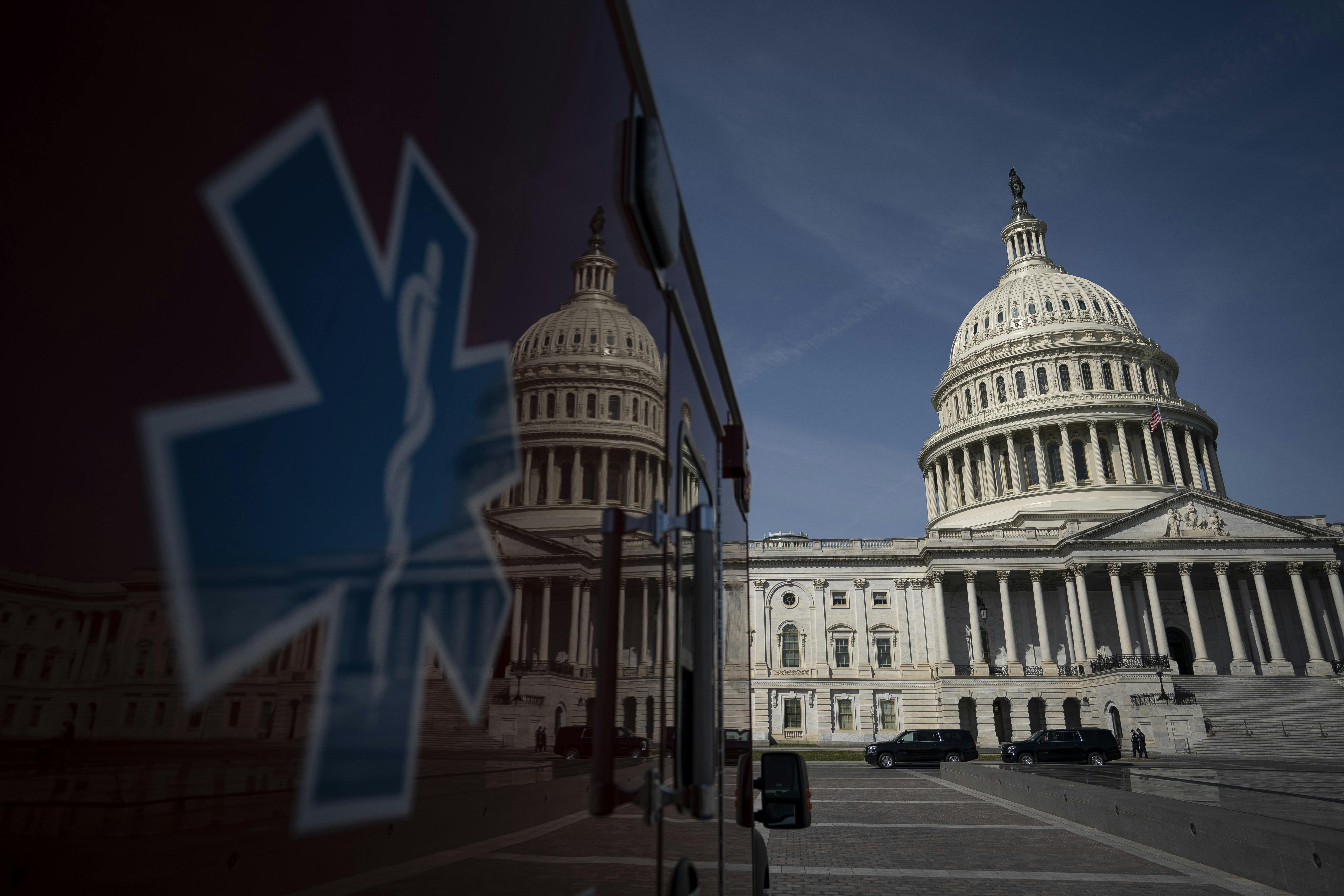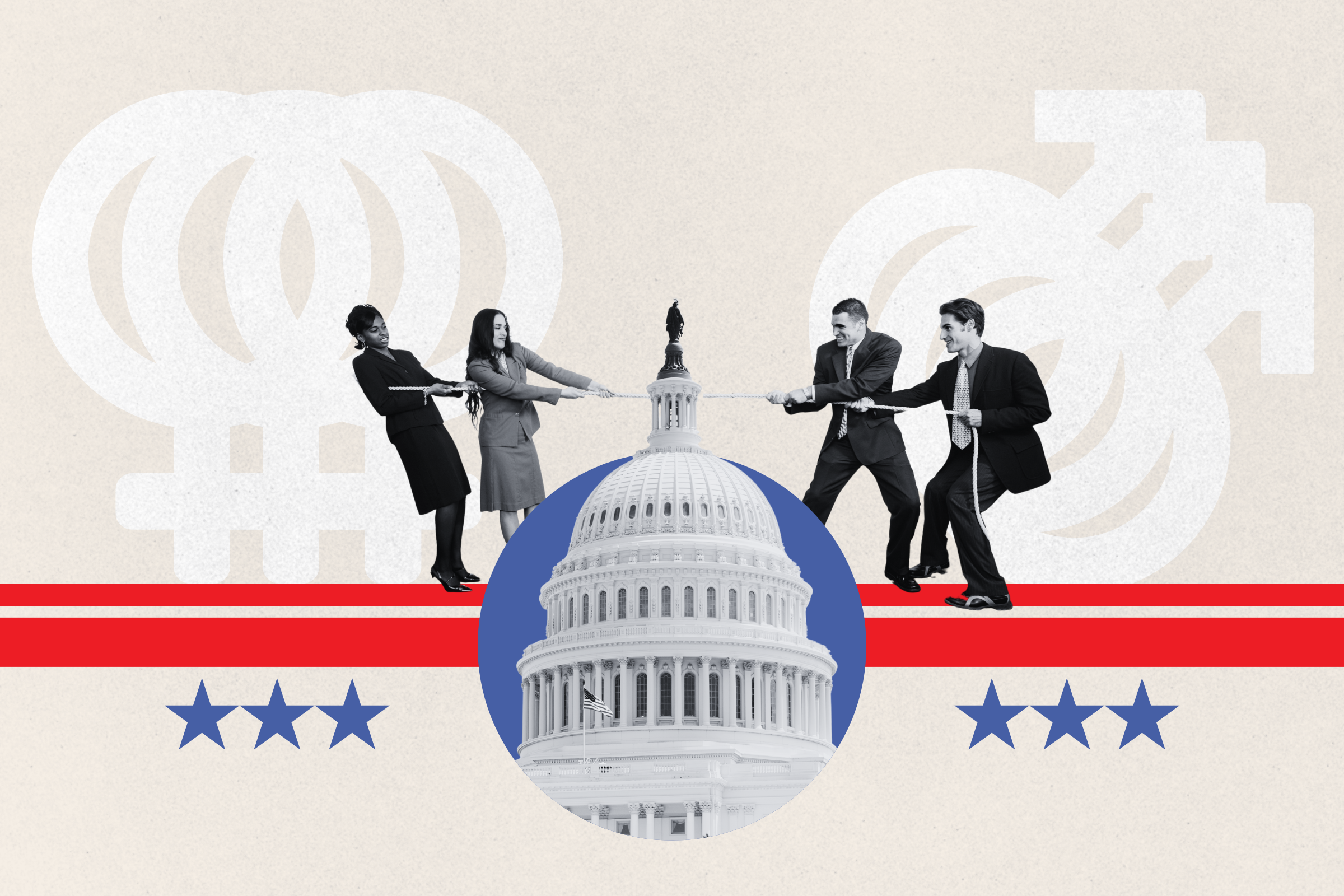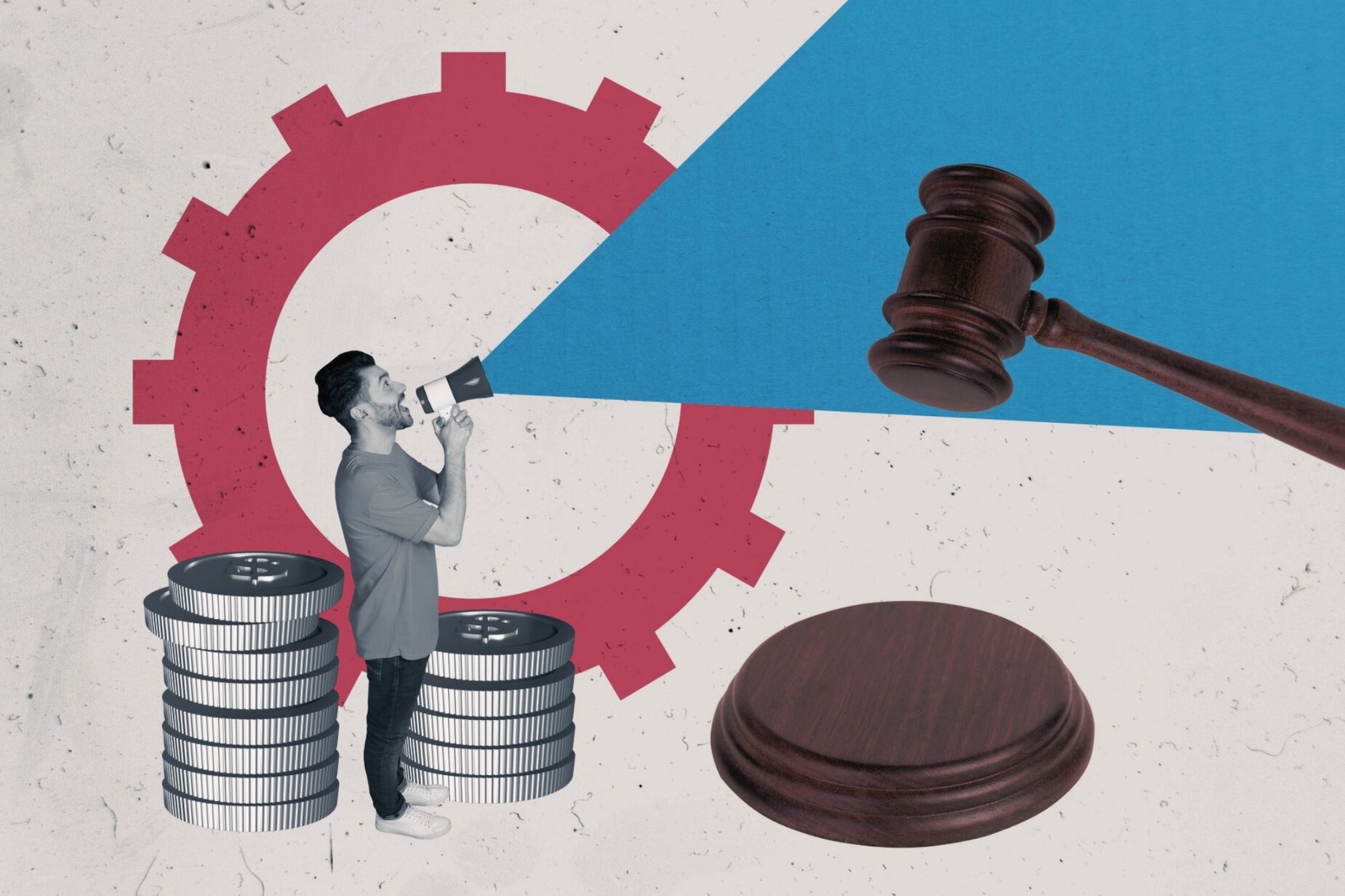While campaigning this spring in the Democratic primary for Missouri’s first congressional district, then–insurgent candidate Cori Bush found herself struggling to breathe: a hallmark symptom caused by the novel coronavirus that had originated mere months before in Wuhan, China. While now Representative-elect Bush’s case would soon prove severe enough to require hospitalization, she was initially terrified to call an ambulance—acquiescing only when her friend Dr. Victoria Dooley insisted on calling one after hearing Bush’s strained efforts to describe what was happening to her over the phone. “I begged her not to because I couldn’t afford it,” Bush recounted on Twitter. “Nobody should have to make that decision.”
An untold number of patients in the United States are in that same frightening position, and their anxieties are well founded: The cost of ambulance rides make up more than half of so-called “surprise medical bills,” as patients get slapped with unexpected financial penalties for services they didn’t realize were outside their insurers’ provider networks until payment comes due. While around 20 percent of Americans report receiving some sort of surprise medical bill in a given year, the practice appears particularly common in ambulance services: Around one-quarter of all trips turn out to be well above what the insurer is willing to pay, foisting the balance due onto the patient. An investigation by Kaiser Health News found that these charges frequently top thousands of dollars, often for rides of just a few miles. One formerly unhoused journalist writing for The American Prospect described how $4,000 in outstanding ambulance bills damaged her credit and made it more difficult to achieve economic and housing stability.
But now—as Congress finally seems poised to ban many forms of surprise billing after a years-long bipartisan effort repeatedly scuttled by industry interests—ground ambulance transport appears to be excluded from the bill. While the legislation set for implementation in 2022 will mandate that providers and insurers negotiate most payments among themselves without involving the patient, the status quo for ground ambulance service will remain unchanged (even as air ambulances, their rarer but pricier cousins, will be covered by the law). The reasons reflect a basic failure to fund robust emergency medical services in the U.S., and how we came to push those costs onto patients instead. It’s an already dire problem that will surely worsen in the aftershock of the Covid-19 pandemic.
For most of the twentieth century, medical transportation wasn’t given a whole lot of thought. The capabilities of emergency medical practitioners were a shadow of today’s industry standard. Consequently, there wasn’t much that anyone could do for a patient until they actually arrived at the hospital, so these services were handled by police or fire departments. In fact, morticians, whose vehicles were large enough to accommodate caskets, often filled the gap because they could easily fit living passengers, as well. According to a history of emergency medical services published in the American Journal of Public Health, all that began to change in the 1960s, when medical breakthroughs made more life-saving interventions possible, and research into traffic accidents revealed that thousands of deaths per year could possibly be prevented by faster access to medical care. In 1973, Congress approved millions of dollars in federal funding to develop emergency medical and ambulance services at the local and state levels.
But when austerity fetishist Ronald Reagan ascended to the White House, he significantly slashed the program, leaving ambulance jurisdiction largely up to state and municipal governments. The results were predictably uneven, varying by locale, with some cities running their own ambulance services and others off-loading duties onto private companies, some of which were staffed by volunteers. These services depended on some combination of public money, hospital budgets, and user fees, but ambulance rides remained free or inexpensive for patients, even as industry consolidation over the next two decades caused prices gradually to rise.
What arguably precipitated the dizzying spike that so frequently leaves unknowing patients with four-figure bills today was the Great Recession of 2008, which drained the coffers of local government as incomes plummeted and tax bases dried up. As described in The American Prospect, while “too big to fail” investment banks were chastened by tighter regulations in the aftermath, it was a feeding frenzy for private equity firms. In the years after the financial crash, private equity firms more than quadrupled their holdings, topping $4 trillion; along the way, they bought up a significant number of ambulance providers. The result has been nothing short of the total transformation of what was once a quasi-public service into a profit-hungry industry.
Unlike the community-based ambulance services of the past—even those that joined forces to form larger firms—private equity firms lack a medical mission. They buy up companies and do whatever possible to extract ever-higher profits from those acquisitions, particularly in cases of “leveraged buyouts,” in which they saddle a firm with the debt from its own sale. In the case of ambulances, there was an obvious way to cash in: Jack up the prices and hold patients themselves responsible for whatever their insurer wouldn’t pay. While Medicare and Medicaid obstructed this strategy by capping reimbursements for ambulance rides at around 60 to 70 percent of what private insurers paid, private equity firms happily billed other plans and uninsured people as much as they could. One patient I spoke to was bilked for $3,000 for a ride of less than a mile during a flare-up of Crohn’s disease; another paid $2,400 to be transported seven miles after getting hit by a car. In both cases, the patients sarcastically admitted the very obvious premise that the for-profit ambulance industry is built upon: In the throes of serious health emergencies, they weren’t exactly in a position to shop around for deals! And even if they had the ability to do a round of comparison shopping, who the hell would want to?
It should be obvious, but it bears repeating: Ambulance users are, by definition, people in dire straits. This is perhaps why private ambulance companies reportedly focus on compelling their workers to get clients to sign paperwork accepting responsibility even while in the grip of a health crisis. According to an investigative report by The New York Times on the impact of private equity on emergency services, one ambulance provider began displaying posters, post-acquisition, imploring medics to get a signature: “Almost always, if the patient is alert, they will be able to sign,” said one cartoon man on the display. For patients who couldn’t fork over exorbitant sums—or whose families couldn’t, in the event of their death—private equity–owned ambulance services pushed bills into collections faster than their previous incarnations. Kaiser Health News theorizes that all of this is intentional, noting that ambulance companies rarely contract with any insurers anymore, so as to preserve their billing practices.
Of course, beyond price-gouging, profit-driven EMS companies have relied on another time-tested method for maximizing profit: minimizing costs. In that vein, private equity–helmed emergency service providers have often tightened belts in ways that threaten public safety. As Michelle Wilde Anderson put it in The New York Times, “We’re reaching new lows in public safety services.… [These firms] are not philanthropists.” Some of their less philanthropic behaviors include pushing medics to snatch supplies off hospital gurneys, letting vehicles fall into disrepair, and leaving cities in the lurch without necessary services when they pull the plug on a given company. Private emergency service companies also underpay their medics—an issue that recently received national attention when The New York Post ran a lurid, unethical piece outing a New York City medic for buttressing her low income by selling nudes on the side.
Depressingly, the problem seems likely to get even worse in the near future. Throughout the coronavirus pandemic, ambulance companies have seen their revenue fall as elective procedures and transfers between medical centers have plummeted. The private ambulances’ trade association has complained that it didn’t receive enough federal aid to thwart ruin, and its added personal protective equipment costs have left it in the red. More distressingly, it’s easy to imagine a postpandemic hit to local and state budgets mirroring the one in 2008, fueling yet another spate of ambulance acquisitions that empower private equity firms to drive up prices for even more patients than they already do. If Medicaid rolls increase, as they’re predicted to, ambulances are all but certain to raise prices for others to offset the lower reimbursement caps.
With its long-awaited surprise billing fix, Congress is showing us just how hard it is to put the decades-long genie of piecemeal and privatized ambulance services back in the bottle: Private equity firms have every reason to lobby against the change and deep pockets to spend on the effort; private firms that haven’t been acquired yet could easily throw in the towel; and halting so-called balance billing stands to hit already strained municipal budgets, where ambulances are still precariously buoyed by user fees. Like so many other facets of the health care system, ambulance transportation costs are locked into a mind-boggling paradigm that will let them do nothing but rise, which companies will sustain only by loading more costs onto you. Patients will grow even more afraid of ambulances, increasingly opting for Ubers instead, even if their organs are spilling out onto their hands. There’s always some other, more beleaguered group of laborers left to pick up the slack in this race to the bottom.


















